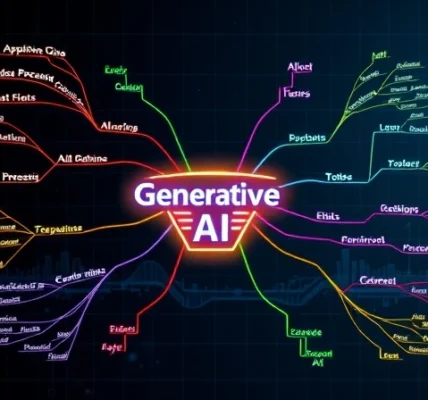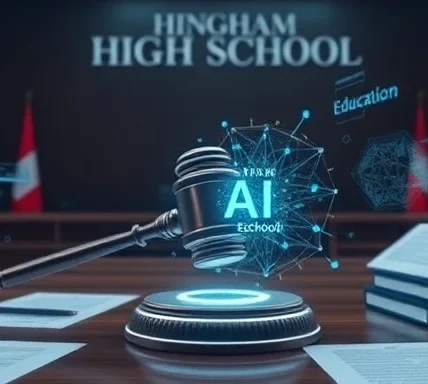The development of AI transformed many industries, and one of the most attractive and advantageous applications of this technology is video generation. Whenever we mention the words “AI Video Generator NSFW,” we refer to any AI appliance that can create video content, including those containing unmentionable content or not suitable for work (NSFW—not safe for work). Although this technology has a lot to offer in creative and commercial terms, ethical, legal, and misuse issues remain alive.
In this article, we explore the secrets of how an AI video generator works, the implications of NSFW content, and the technology’s broader impact on society. We also address some frequently asked questions to help you develop a better comprehension of AI video generation within an NSFW context.
What Is an AI Video Generator?
AI Video Generator is a software application that uses artificial intelligence to develop video content. Such systems use deep learning algorithms and often train neural networks to develop images, sounds, and movements. AI video generators could create realistic-looking videos, which sometimes convert text into video but with a combination of images. Therefore, these become powerful tools for areas like entertainment, marketing, and even education.
In the recent past, AI video generators have made rapid advancements. These tools can generate just a short clip or an entire video. In some cases, things get a little bit more than with just clips or videos; the AI might be able to imitate a specific person’s movements, actions, or particular environments.
What Does “NSFW” Mean?
NSFW means not safe for work, which means to tag inappropriate content within professional or public settings. This can include explicit language, adult themes, graphic violence, or disturbing imagery. In AI video generation, this signifies video content containing explicit, sexual, or otherwise inappropriate content.
Users can program AI video generators to record NSFW content by providing the right prompts or training them on specific data. This is just one application of these tools, and their privacy, consent, and ethical abuse are primarily the focal points of concern.

How Does AI Generate Videos?
Usually, AI video generators are based on deep learning models, such as Generative Adversarial Networks (GANs), designed to analyze a huge amount of datasets to learn and produce new content. These networks are composed of two parts: a generator and a discriminator. The generator creates images or videos, while the discriminator evaluates how realistic they are.
In the long run, the more the generator gets feedback from the discriminator, the better it improves in generating that content. The more data the system trains on, the better the AI fine-tunes itself to produce realistic and accurate videos.
For AI video generators to create NSFW content, developers must train them on datasets containing explicit or adult material. Once trained, these systems can recreate a likeness that is often indistinguishable from the real one; sometimes it is very blurry between reality and artificial.
The Implications of AI Video Generators Creating NSFW Content
AI may bring a great deal of good in advertising, filmmaking, and entertainment with the ability to produce video content, but it also raises hardly insignificant ethical problems, such as the generation of NSFW content.
1. Ethical Issues
One of the biggest ethical issues with AI-generated NSFW content is its potential for highly unethical creation. Consumers can develop explicit videos using real people’s likenesses for identity theft, harassment, or defamation. People have abused deepfake technology, another form of AI video generation, to create fake pornographic videos of both celebrities and ordinary individuals. The wholesome creation of a realistic yet non-existent image makes room for very serious ethical dilemmas.
2. Legal Issues
Creating NSFW content through the use of AI may also have legal consequences. It might infringe on laws pertaining to pornography, consent, and privacy depending on the mode of producing that content. Many countries classify the creation of pornographic materials, including those featuring underage minors—even if generated by artificial intelligence—as illegal and punishable by law. Furthermore, the producers of AI-generated NSFW videos may find themselves in trouble legally if their works breach the intellectual property rights of someone or defame a person’s image.
3. Misinformation and Manipulation
Such AI-generated NSFW content acts as a tool for manipulation and deception. Pretending reality, using entirely fake videos, might result in criminal action such as blackmail, misinformation, or sheer public hysteria. Since these are ubiquitous, they do damage to the trustworthiness of media, particularly at a time when a public is already suffering from an information overload.
4. Changes in Society as a Whole
The coming effects of AI in generating NSFW videos do transcend personal relationships and extend to the human body, since it seems human-like and increases exposure to normalizing sexual content. With the advent of such technologies, AI can now create completely lifelike moving pictures of anything, including highly sensitive materials, leading to unrealistic expectations and the normalization of harmful behavior. This could have a far-reaching effect on future social norms and personal interaction.
Addressing the Risks of AI Video Generator NSFW Content
Implementing some of these technologies to mitigate or reduce any risk they might pose would be important if the person using an AI video generator creates “NSFW” content.
- Regulation and oversight: Governments and industry leaders, in turn, need to come up with regulations that will answer the most relevant questions concerning the use of AI in content generation, especially in NSFW areas—defined use for who could benefit from AI video generators and how to use them.
- Consent and Privacy Protection: AI systems should view the rights of individuals concerning their privacy and consent as a priority. Anyone using AI-generated content featuring real individuals must strictly ensure they obtain permission and do not use people’s likenesses without consent.
- AI Detection Tools: AI builds deepfake and NSFW videos; it can also detect them. Developing an AI-based system for the identification and flagging of content that falls into either of these categories would serve to prevent the spreading of misleading or harmful material.
- Ethical AI Development: AI developers would need to draft guidelines and standards of ethics in the operation of their tools by making it possible not to use AI for generating NSFW content and reducing possibilities of dangerous or malicious applications.

Conclusion
The AI video generators, especially ones that are capable of creating a bit of NSFW stuff, are really trespassing lines in the digital space. The dimensions in which this technology can be applied seem unlimited and exciting, yet they fundamentally need to be weighed against some serious ethical, legal, and social dilemmas. Further advancements in AI technology create demands on society to immediately address such issues and lay down responsible rules for its use. The future of this technology will only depend on our ability to masterfully untangle this knotty space to shape it such that the technology really ends up benefiting everyone fairly and ethically.
Read Also: AI Image Generator No Restrictions
FAQs About AI Video Generator NSFW
An AI Video Generator NSFW refers to an artificial intelligence system capable of generating video content, including explicit or inappropriate material that is considered “Not Safe for Work.”
A Video Generator AI makes any kind of content, including NSFW, through analyzing extensive data collections with explicit material. These data patterns are then processed with deep learning algorithms, including GANs, to create highly realistic videos from them.
Ethical concerns include the potential for creating explicit videos featuring real people without consent, the risk of misinformation, and the impact on social norms and human behavior.
Prevention can be achieved through regulation, consent protections, the development of AI detection tools, and ethical guidelines for AI developers.
The legality of AI-generated NSFW content varies by jurisdiction. In many places, creating explicit material involving minors or using someone’s likeness without permission is illegal.





